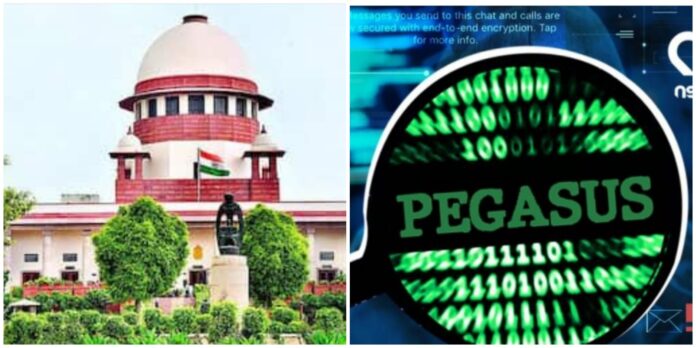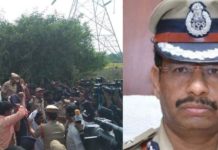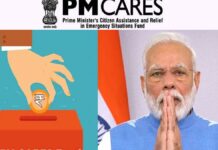The Supreme Court on Wednesday ordered a probe into the Pegasus surveillance scandal by a three-member expert committee.
The expert committee will be headed by former Supreme Court judge, Justice RV Raveendran and will be assisted by Alok Joshi (former IPS Officer) and Dr. Sundeep Oberoi, Chairman, Sub Committee in (International Organisation of Standardisation/ International Electro-Technical Commission/Joint Technical Committee).
The petitioners included advocate ML Sharma, Rajya Sabha MP John Brittas, Director of Hindu Group of publications N Ram and founder of Asianet Sashi Kumar, Editors Guild of India, journalists Rupesh Kumar Singh, Ipsa Shatakshi, Paranjoy Guha Thakurta, SNM Abidi and Prem Shankar Jha.
The Court in its judgment slammed the Central government for raising the argument of national security to defend its case stating that it cannot be an argument to gain a free pass every time the Court exercises judicial review.
“State cannot get free pass every time by raising national security concerns. no omnibus prohibition can be called against judicial review. Centre should have justified its stand in here (Pegasus scandal)and not render the court a mute spectator,” the top court said.
The Central government had earlier refused to file an official affidavit in the matter citing that the issue concerns national security.
“There has been no specific denial by Centre (about use of Pegasus). Thus we have no option but to accept the submissions of petitioner prima facie and thus we appoint an expert committee whose function will be overseen by the supreme court,”the top court ordered.
The Court also said that while it is the era of information technology which is crucial for our daily lives, it is equally important to safeguard the privacy of citizens.
The SC also underlined the importance of privacy and technology, saying that while there are restrictions on right to privacy, the same are bound by Constitutional safeguards. Restrictions on privacy can be imposed only for prevention of terrorist activities in the interest of national security.
“We live in the era of information. We must recognise while technology is important, it is important to safeguard right to privacy. Not only journalists etc but privacy is important for all citizens.
There are restrictions on right to privacy but those restrictions have to stand constitutional scrutiny. In today’s world restriction on privacy is to prevent terrorism activity and can only be imposed when needed to protect national security,” the judgment said.
Surveillance affects the right and freedom of people and freedom of press and the important role played by them. Such surveillance technology may have chilling effect on right to press, the Court added.
The judgment was delivered by a Bench of Chief Justice of India NV Ramana and Justices Surya Kant and Hima Kohli.
Pegasus Snoopgate
The controversial use of the Pegasus spyware, a flagship product of Israel’s NSO Group, to target thousands of people including more than a hundred in India, hit the headlines following media reports in July this year. The publication of names by digital news platform The Wire, which was part of the international collaboration along with 16 media partners led by the Paris-based journalism nonprofit Forbidden Stories, included activists, journalists and politicians in the country.
Israel based spyware firm NSO is best known for its Pegasus spyware, which it claims is sold only to “vetted governments” and not to private entities, though the company does not reveal which governments it sells the controversial product to.
Pegasus Project: How Forbidden Stories and Amnesty Tech Broke the Story
The reports indicated that the software may have been used to infect the mobile devices of several persons including Indian journalists, activists, lawyers, officials, a former Supreme Court judge and others.
The reports had referred to a list of phone numbers that were selected as potential targets. Upon analysis by a team from Amnesty International, some of these numbers were found to have traces of a successful Pegasus infection, while some showed attempted infection, the reports had said.
The Court had eventually reserved its order saying that it will pass orders without Centre’s affidavit.
Source: Bar & Bench



























